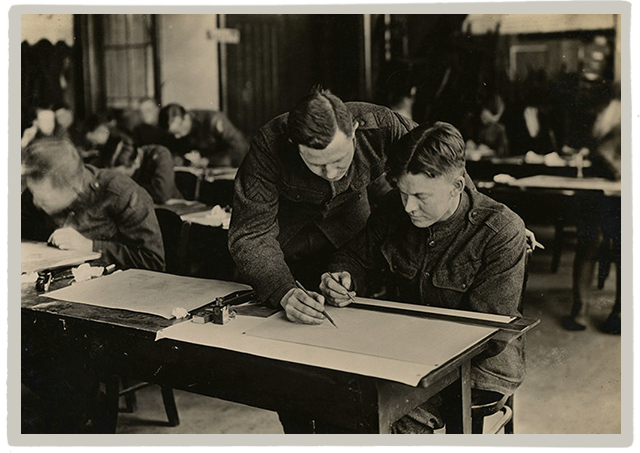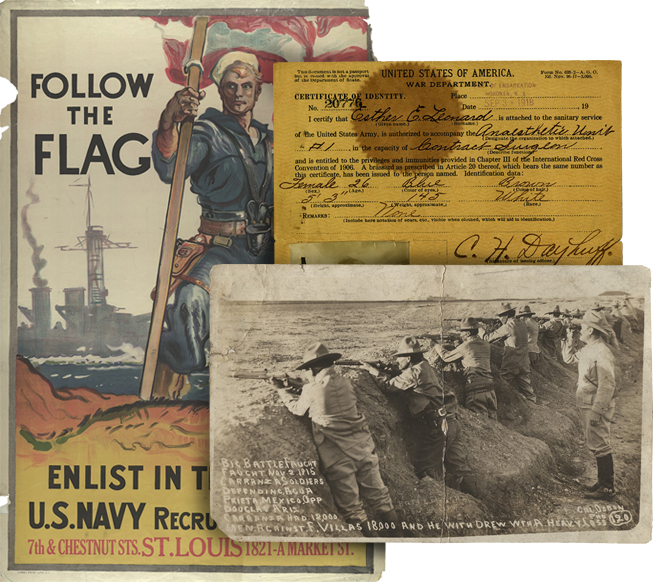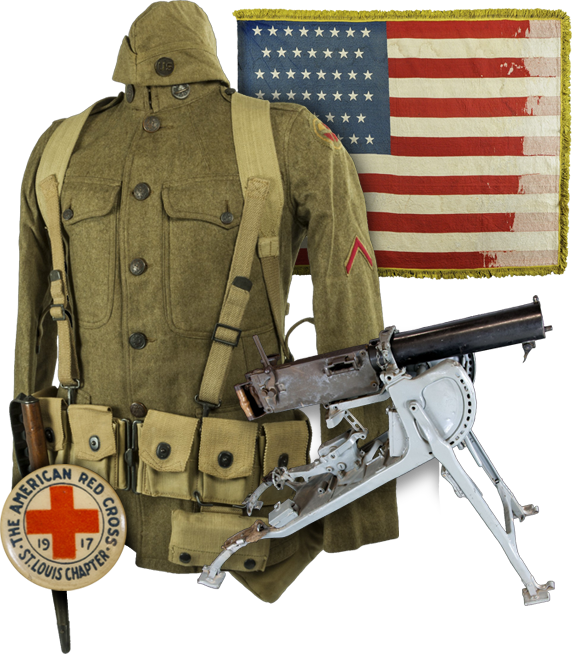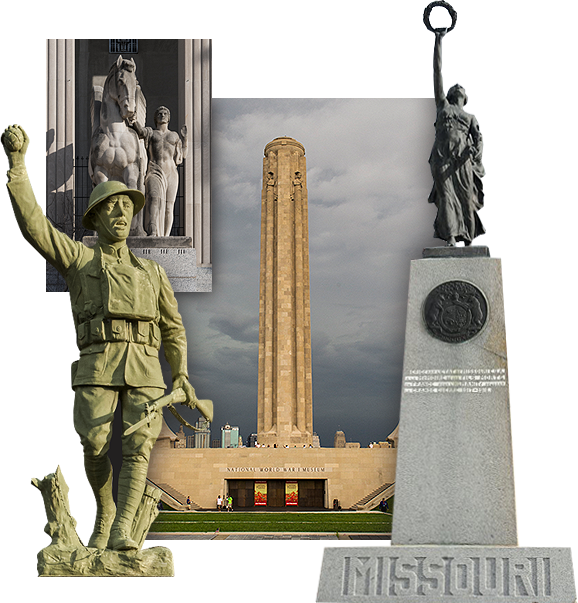Remarks of A. James McDonald before the American Legion Post at Clayton, New Mexico - December 22, 1919

Transcript
[page 1] REMARK S OF A. JAMES McDONALD, MADE MONDAY, DECEMBER 22, 1919, BEFORE THE AMERICAN LEGION POST CLAYTON, NEW MEXICO. Mr. Chairman and Gentlemen: 1. I have written these remarks so that I cannot well be accused of saying something I did not say, because misrepresentation of what I have said is the very thing that has caused the misunderstanding in this case. 2. I want to thank the Clayton Post of the American Legion for the opportunity to come here and make these remarks; and especially I want to thank the committee that waited on me Saturday, December 13, 1919, and which has reported to this post. I appreciated the kindly personal attitude of the members of the committee, and I am confident that it reflected the attitude of a large majority of the members of the Post. 3. I have not come here because I felt any obligation to come, and I presume that you do not claim any authority to compel me to come. I have come voluntarily in accordance with an offer I made to your committee and the invitation you extended to me, for the sole purpose of clearing up what seems to be a misunderstanding regarding my attitude toward certain questions of public interest, and I am glad to have this occasion and opportunity to tell you my attitude fully and clearly. I may add that misunderstanding always causes more trouble than differences of opinion cause. 4. The immediate cause of misunderstanding in this case was the presentation to me some weeks ago by Mr. Simon Herzstein, at the conclusion of a Rotary club luncheon in the Eklund Hotel dining room, of a poster or placard, and my declining led to an argument in the hotel lobby, in the course of which I stated to Mr. Herzstein and several others my reasons for declining. 5. When the matter was brought to the attention of the Clayton Post of the American Legion, and a committee composed of Dr. S. M. Edmondson, John Hill and L. M. Walker was selected to take up the matter with me, I told the committee that for the reasons stated and other reasons I still could not see my way clear to sign and hang up the poster. I shall now state to you why. 6. The poster contains the words

Transcript
[page 2] the red and black flags of Anarchy and Bolshevism, and also be loyal to the Stars and Stripes.

Transcript
[page 3] men. I cannot help believing that one of the reasons why some of our businessmen have made use of this card is that they want people to believe that they are Americans, and that they have not other way of making that fact known. Their business practices do not proclaim them to be Americans, not even as much as ten per cent Americans. I take this occasion to say to you gentlemen that I do not need any such means of proclaiming my Americanism; I am willing to let my actions proclaim it. I may say also that it would be distasteful for me to sign the same poster that some of our profiteers have been so glad to sigh and hang up in their stores and offices. 9. I have just said that I am willing to let my actions proclaim my Americanism. During the war, when you boys were at the front or in training camps, I was filling out questionnaires and many other kinds of papers for soldiers and their dependent. I was making four-minute, Liberty Loan, Red Cross and other talks whenever and wherever I was assigned to do so, and doing it freely and gladly. You may ask any of the numerous audiences I talked to if I preached anything but one hundred per cent Americanism, and I believe every one will tell you that I did not, but that I gave the Administration one hundred per cent support. Moreover, I believe I am within the facts when I say that I sacrificed as much as many of the men who engaged in active service or in training for it. Everyman in the service was paid, though some, it is true, were not highly paid, but all were taken care of as well as it was reasonably possible for the Government to take care of them, and provision was made for their families. I received nothing for the very large amount of time that I devoted to this work over the period of a number of months. On account of the fact that I spoke Spanish, I got probably more of that work than any of the other attorneys in the town, and the attorneys, of course, got more of it than any other class of businessman. Those in charge of various lines of war work though well enough of my Americanism to elect me chairman of the Home Service Section of the Red Cross. 10. The chief accusation against me, so far as I know, is that I have placed the red flag before and above the stars and stripes. That accusation is false. In May, 1918, at the request of the editors of the Clayton News and Clayton Citizen, I wrote an article, which was published in the News of May 18th, and in the Citizen of about the same date, for the express purpose of explaining the attitude of Socialists toward the war and removing any misunderstanding that might exist regarding it. In the course of what article I stated that I was an internationalist; that I would rather be a citizen of the world that a citizen of the United States. The article was read by a number of leading Republicans and Democrats of Clayton and Visinity, and several of them, among them Mr. Hugh B. Woodward, warily commended it. Not one, so far as I ever learned, took any exception to it whatever. I believe all will admit that the ideal of internationalism is a higher ideal than that of nationalism; and the very fact that we have a League

Transcript
[page 4] of Nations in process of formation shows that internationalism is the necessary logical consequence of progressive nationalism. Internationalism does not detract from one

Transcript
[page 5] quietly about my own business, and to whatever extent this case has been spread abroad it has been done entirely by the other fellow. I decline, therefore, to take the responsibility for any public scandal that may possibly result. 14. In ordinary times probably little or no attention would be paid to remarks that bay person might make on public matters. But these are not ordinary times, and it behooves us all to realize that they are not and to draw our lines of talk and action accordingly. I have realized that is and acted accordingly. For the past two and a half years I have taken no active part whatever in partisan political matters. Practically the only discussion of such matters that I have taken part in during that time have been opened by other persons, and they have been private conversations with one or a few persons, and not public talks to any considerable number. I have done this for the reason, as stated in the newspaper article, that our governmental Administration has a hard enough task ahead of it at best, and that it behooved all our citizens to stand by the Administration during the emergency of the war. An emergency still exists

Transcript
[page 6] to the agitator, or will run him off the street, or will beat him up, if he says objectionable things. This same working man, if he is out of a job, if his wife or children are cold or hungry, if they are evicted from their rented home for not-payment of rent, or if his children are out of school because not properly fed or clothed, will not object to the same kind of agitation at all; he will listen to the agitator and listen attentively. It will make a little or nor difference to that workingman whether the agitator puts up a constructive program, or simply rails against existing conditions with a view to tearing down what we already have. 17. Did you ever see a steam engine without safety valve? No, and you never will, because to build such an engine would be to invite disaster. Just as soon as the steam pressure would rise to a point where the boiler would be unable to withstand it, there would be an explosion. Safety valves are needed by governments very much as they are needed on steam engines, and for very much the same reason

Transcript
[page 7] putting out this poster, but if such were its purpose, can you conceive of a better means of carrying it out? 20. There is a phase of this matter that you gentlemen know nothing of. From the very first day that I took my place in Clayton life as an independent practitioner, I was persona non grata with political leaders on both sides, because I declined to align myself with either side, preferring to be independent, though I voted the Democratic or Republican ticket or scratched. I received no assistance from the other lawyers or from the judges of our courts such as is ordinarily given to beginners in the practice of law who make themselves personae gratae, or, to put it more bluntly, who allow themselves to be used by the political leaders and the business element. When in 1911 I began to take an active part in political matters, and was largely instrumental in the putting of a Socialist ticket in the field, I became the mark for my political opponents who tried to put me out of business as the most effective way to silence me politically. Men told their business. They went further and told their friends that they would be boycotted if they continued to bring me their legal business elsewhere, and several of these told me frankly why they did so; that they would have preferred to bring me their business, but that if they did they would get the worst of it from the business and political elements have not succeeded in putting me out of business, but they have succeeded in confining my business to a small and unimportant kind that enables me, If I stay in the job pretty steadily and work hard, to make as much as a fair stenographer or bookkeeper could make, but nothing like what the average lawyer of any ability at all can make. 21. But even that would not have been so bad if the fight had been carried on above ground and in accord with ordinary decency. It was carried on underground, and I was never able to put my finger on any of the persons who were doing it without implicating the friends who had the decency to tell me what was going on, and thus subjecting them to the same kind of treatment that I was getting. This I declined to consider. For the first time in more then eight years this fight has been brought to the surface, at least in part, and I am more than delighted that it has been. For the first time in all that period I have an opportunity to defend, and if necessary hit back, Don

Transcript
[page 8] duty of every man to express and maintain his convictions whenever occasion demands. I have tried to do both, but the conviction has been forced on me more and more in the passing years that it would be much easier for me to make a living if I were willing to sacrifice my convictions, or at least put them on the shelf. I wonder if we, as a people, have so far lost the spirit of tolerance, which is one of the chief elements of Americanism, that we require a man to sacrifice his convictions in order to made a decent living. 23. The Denver Post of the 14th of this month contained a cartoon depicting Uncle Sam saying to the American Legion;

Transcript
[page 9] Germany a people has been educated into a measure of respect for and obedience to autocratic authority that seemed incredible to most of us until within the last year. Rhird, conditions have changed since the adoption by the Socialist party of its platform, and war declaration in April, 1917: or at least many of us see things more clearly now than we then did. The issue is more clearly defined. This, I believe, would justify a change by the socialist party in its attitude toward this war. Furthermore, we are face to face with an emergency of the first magnitude in the history of mankind, and it is only the part of reason and common sense to recognize this fact and waive, for the period of the war, some of the practices that an ordinary times we are fully justified insisting on. If the fallible men we place in authority fail to measure up at once to the truly stupendous and unprecedented task sufficiently thrust upon the m, the emergency demands that we withhold the criticism and opposition that in ordinary times would be fully justified by failure of an administration to properly meet and solve the situations and problems of government.

Transcript
[page 10]

Transcript
reform or abolition. The Republican party was formed as a protest against slavery, than which no other institution was more firmly fixed upon us or more fiercely defended. Some of the early agitators for abolition were treated as roughly as a few thoughtless ones want now to treat agitators for other changes in our constitution and political or industrial system. Only when force is advocated or adopted does advocacy of change in our laws and even the constitution itself deserve repression, and even then it should be legal repression, not that of the mob. If our institutions cannot survive open discussion, if our education of the youth of the land in American principles and true democracy is so defective that we are not developing them into safe and sound citizens, then we are making a failure in our democracy. The greatest failure we could make would be to become intolerant of those we hold or desire, and express that intolerance by resort to illegal force or intimidation.
Details
| Title | Remarks of A. James McDonald before the American Legion Post at Clayton, New Mexico - December 22, 1919 |
| Creator | McDonald, James A. |
| Source | McDonald, James A. Remarks at American Legion Post. 22 December 1919. Frank P. O'Hare Papers, 1850-1960. A1152. Missouri History Museum, Saint Louis, Missouri. |
| Description | In 1912, Frank O'Hare became editor of the Rip-Saw, a socialist monthly issued from St. Louis. He was married to the prominent socialist Kate Richards O'Hare, who was imprisoned during World War I (April 1919 |
| Subject LCSH | World War, 1914-1918; Socialism--United States--Periodicals; Political prisoners--Government policy--United States; Political prisoners--United States; Espionage, American; Sedition--United States; Women prisoners--Abuse of |
| Subject Local | WWI; World War I |
| Site Accession Number | A1152 |
| Contributing Institution | Missouri History Museum |
| Copy Request | Transmission or reproduction of items on these pages beyond those allowed by fair use requires the written permission of the Missouri History Museum: 314-746-4510 |
| Rights | The text and images contained in this collection are intended for research and educational use only. Duplication of any of these images for commercial use without express written consent is expressly prohibited. Contact the Missouri History Museum's Permissions Office at 314-746-4511 to obtain written consent. |
| Date Original | December 22, 1919 |
| Language | English |



